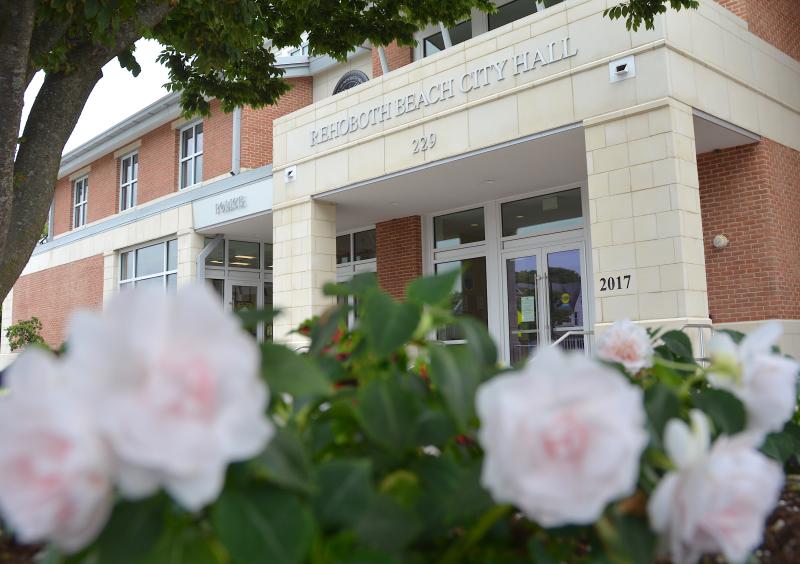Rehoboth expecting $2.7 million surplus on last year’s budget
Months after increasing taxes and fees across the board to pay for the current fiscal year, Rehoboth Beach staff is reporting the city could see a $2.7 million surplus for the fiscal year that ended March 31.
The amount hasn’t been verified by an independent audit, but everything has been turned into the auditor and is basically done, said City Finance Director Burt Dukes, during a finance department presentation at the July 19 commissioner meeting. The purpose of the presentation was to dispel any feelings that the city is broke, he said, adding that the city has $20 million in its fund balance.
“At no time in the history of Rehoboth Beach has the city been in a stronger financial position,” said Dukes. “There are cities five times larger than Rehoboth that don’t have that kind of fund balance.”
A significant portion of the surplus – about $834,000 – is an American Rescue Plan Act grant, said Dukes. The grant hadn’t been formally approved during the budgeting process, so he was hesitant to include it as a revenue source during the budget discussions earlier this year, he said.
As for the current fiscal year, Dukes said, year to date, the city has seen $5.8 million in revenue. In the same period last year, April 1 to June 30, the city saw $4.8 million in revenues, said Dukes, pointing to the increased parking rates as the primary factor in the increase.
It seems to indicate there’s not too much resistance from users, said Dukes.
Transfer tax is also up $150,000 over the same period, but that’s not as accurate because it could reflect recent transactions, said Dukes. It looks encouraging and it’s not bad news, for sure, he said.
As for available cash, the fund balance has more than $20 million, said Dukes. In 2009, he said, the city had less $1 million in its fund balance.
The city relies heavily on user fees, said Dukes. For example, 44% of the budget is funded through parking sources, he said.
“We love the fact that others are paying for things for us,” said Dukes.
The city has about $60 million in debt, and pays about $1.3 million per year servicing that debt, but it’s all financed at 2% or less interest, said Dukes.
Dukes said while the finances look good, commissioners should continue to find ways to shift more revenue to sources that are predictable. He said nobody likes increasing property taxes, and the city is on a fairly incredible roll, but the city can already see certain areas like transfer taxes beginning to trend down.
While generally accepted as good news, not all the commissioners were pleased with the excess revenue. Not because the excess revenue is a bad thing, but because it came after commissioners voted in favor of increasing property taxes in June.
Commissioners Toni Sharp and Tim Bennett, both of whom decided not to run for re-election this year, voiced their frustration about not having all the information when the vote to increase property taxes was made last month.
Sharp said she was astounded that staff was predicting a $1 million surplus shortly after the current year’s budget was passed, and now it’s nearing $3 million. She said she also found it hard to believe that staff didn’t know the surplus was going to be this high last month when the property tax increase was passed.
Dukes said it’s been city policy to save excess revenue from the prior year, not to spend it to fund the current fiscal year.
Chris Flood has been working for the Cape Gazette since early 2014 and has the local parking passes to prove it. He currently covers Rehoboth Beach and Henlopen Acres, but has also covered Dewey Beach and the state government. He covers environmental stories, business stories, random stories on subjects he finds interesting and has a column called ‘Choppin’ Wood’ that runs every other week. Additionally, Chris moonlights as the company’s circulation manager, which primarily means fixing boxes during daylight hours that are jammed with coins, but sometimes means delivering papers in the middle of the night. He’s a graduate of the University of Maine and the Landing School of Boat Building & Design. People are often surprised to learn that Chris has a wife and two kids.














































